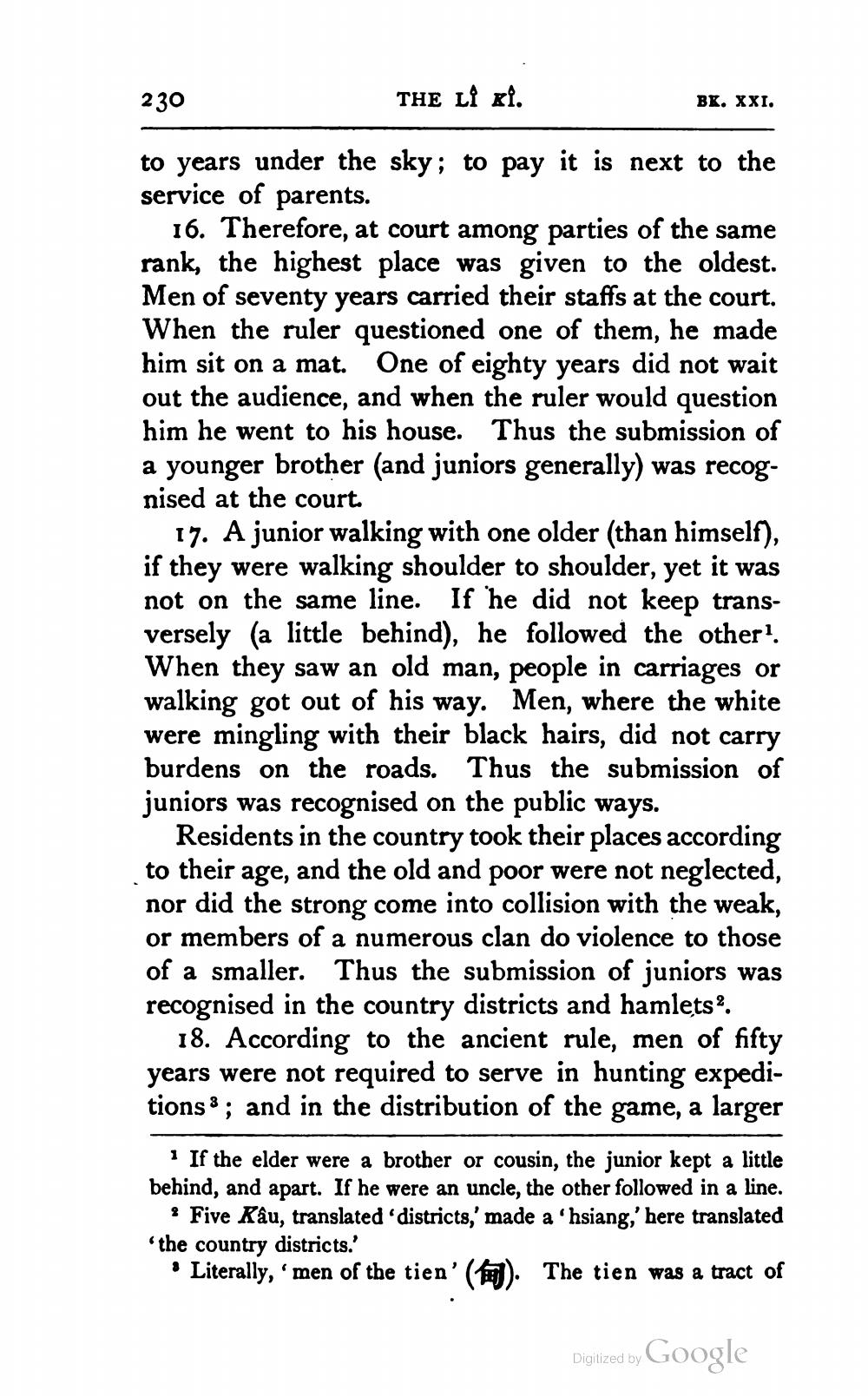________________
230
THE LÎ xi.
BK. XXI.
to years under the sky; to pay it is next to the service of parents.
16. Therefore, at court among parties of the same rank, the highest place was given to the oldest. Men of seventy years carried their staffs at the court. When the ruler questioned one of them, he made him sit on a mat. One of eighty years did not wait out the audience, and when the ruler would question him he went to his house. Thus the submission of a younger brother (and juniors generally) was recognised at the court.
17. A junior walking with one older (than himself), if they were walking shoulder to shoulder, yet it was not on the same line. If he did not keep transversely (a little behind), he followed the other! When they saw an old man, people in carriages or walking got out of his way. Men, where the white were mingling with their black hairs, did not carry burdens on the roads. Thus the submission of juniors was recognised on the public ways.
Residents in the country took their places according to their age, and the old and poor were not neglected, nor did the strong come into collision with the weak, or members of a numerous clan do violence to those of a smaller. Thus the submission of juniors was recognised in the country districts and hamlets 2.
18. According to the ancient rule, men of fifty years were not required to serve in hunting expeditions : ; and in the distribution of the game, a larger
* If the elder were a brother or cousin, the junior kept a little behind, and apart. If he were an uncle, the other followed in a line.
Five Râu, translated districts,' made a 'hsiang,' here translated the country districts.' • Literally, 'men of the tien' ( ). The tien was a tract of
Digitized by Google




